Hydraulic fluid helps cars function well. However, if the fluid gets on your car's painted surface, you may want to know if it will hurt the paint. We have researched this topic for you and will answer the question in this post. Keep on reading!
Hydraulic fluid will harm car paint if the paint is not silicone-based. This includes brake fluid, which can damage car paint. Getting hydraulic fluid on car paint can also lead to staining. Note that the kind of hydraulic fluid used in construction is not damaging to car paint.
Whatever the case, you will want to avoid getting hydraulic fluid on your car's surface. In the next sections, we will go over how hydraulic fluid is harmful to car paint in more detail, as well as how to remove it if it stains your car. To learn more, read on!
Is Hydraulic Fluid Harmful To Car Paint?
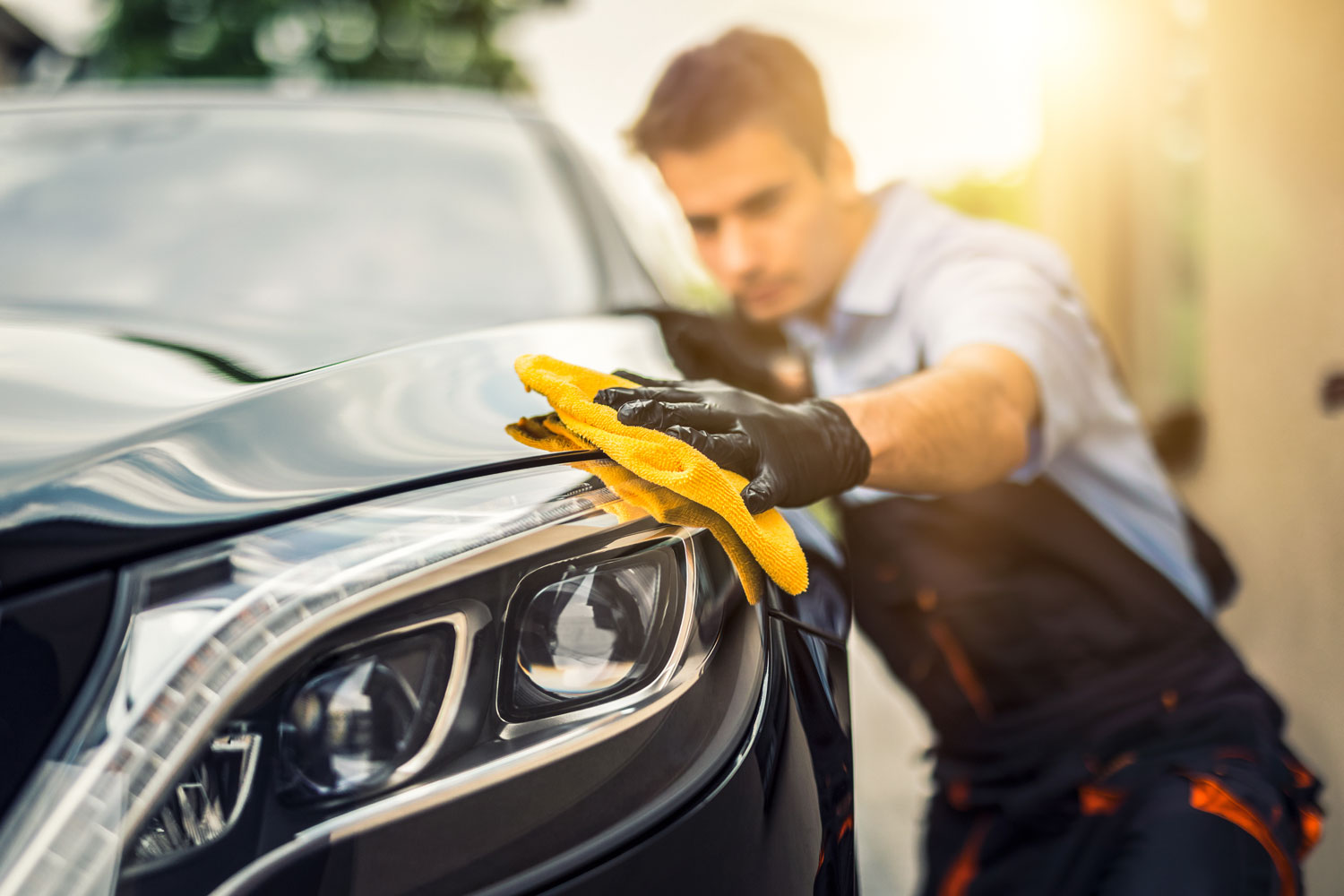
Hydraulic fluid can come in different varieties for use in machinery. This means that some types will react differently with paint compared to others. Cars use brake fluid, which can have the same effect as paint thinner on paint with no silicone in its composition.
You should be careful when handling hydraulic fluids that are mineral oil-based. These can stain paint.
Since hydraulic fluid is important to your car, you can't really do without it. Though you risk getting it on your car's paint, having this happen is avoidable. In most cases, you will be able to clean it off before it can cause any real damage.
Silicone-based paints make application easier, so it is the primary paint all cars use. Additionally, silicone properties offer better waterproofing and protection for a car. Like any other type of paint, car paint is still prone to scuffing and damage.
Aside from hydraulic fluid, several other substances are harmful to car paint. Bird droppings, dirt and dust, bugs, gasoline, leaks, resin, colorants, and acids will eat away car paint.
It is important to keep your car clean and check for leaks regularly. Car repair can be expensive, and the cost to paint a car ranges from $300 to $1,000!
How To Remove Hydraulic Fluid Stains From Car Paint
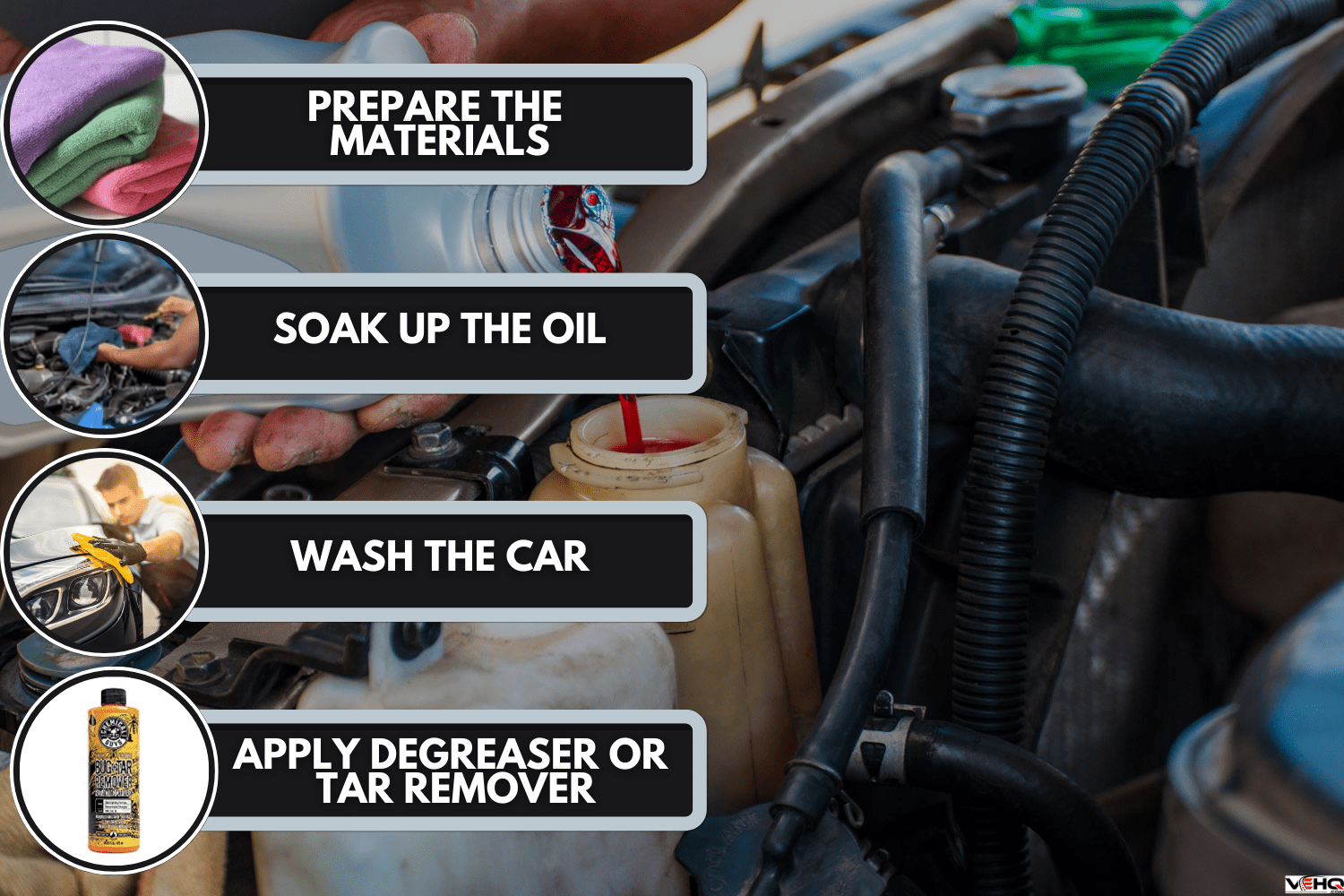
If oil-based hydraulic fluid gets on your car, it can create stains on the paint. The fluid will not break down the paint, but the stains do not look good. Here are the steps for cleaning them off!
Prepare The Materials
For getting rid of oil-based stains on your car paint, you need a microfiber or highly absorbent cloth. You will also need detergent or a car cleaning solution, a scrub brush, a hose or water source, and safety equipment.
Having gloves and goggles on while you clean your car will protect you and your skin. Some people are sensitive to cleaning products. You should exercise caution in handling and using your cleaning supplies.
Soak Up The Oil
If the oil is still wet, cover the oil stain with a microfiber or absorbent cloth. Do not rub the area to keep the oil from spreading. Allow the oil to absorb into the cloth until it stops lifting from the area. In some cases, this method should be enough to clean off the stain. If not, you will have to soap the area.
Wash The Car
For leftover stains or oil stains that are already dry, you need to use a special treatment. Clean off your car, giving special attention to the stain. You can try scrubbing it off while being careful not to scuff the paint. Soap is not enough to remove the stains, but it helps to start with a clean car regardless.
Apply Degreaser Or Tar Remover
Tar remover can be helpful when you're trying to get rid of oil-based stains on car paint. You should thoroughly dry your car before proceeding to this step. You cannot apply tar remover to a wet car.
Put some tar remover on a clean cloth and coat the stained area. Let it soak for at least 15 minutes or for as long as is directed on the package. Then wipe away the tar remover. If you still see stains, reapply the remover until your car paint is stain free.
Click here to see bug and tar remover on Amazon
 How To Safely Add Hydraulic Fluid To Car Reservoir
How To Safely Add Hydraulic Fluid To Car Reservoir
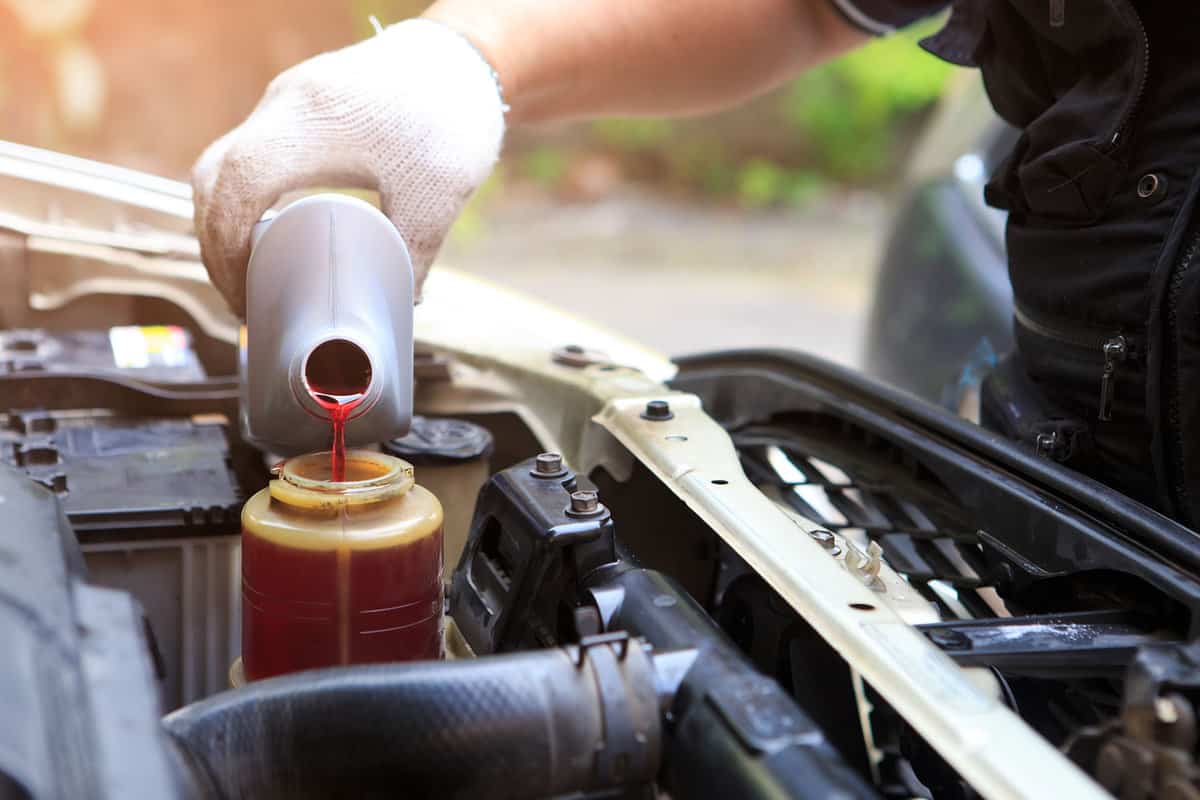
One way to keep hydraulic fluid off your car is to be cautious when filling up the reservoir. When it is time for a refill, make sure you have the right hydraulic fluid for the job. Use safety equipment like gloves along with a clean rag.
Work in a well-lit and ventilated area. Make sure the area is clear of dirt that could contaminate the fluid or find its way into the reservoir.
Try not to spill or get any fluid on your hands. If you do, do not touch the car's paint. When you remove the reservoir cap, wipe it down with a rag to clean off the residue.
Use a funnel to efficiently pour the hydraulic fluid into the reservoir. Funnels help reduce spills and waste. Do not overfill the reservoir. Stop pouring once the fluid fills up to the bottom of the cap line. Too much fluid will make the tank overflow after you put the cap on.
If you accidentally overfill, carefully siphon the excess fluid back into the container. Wipe down the mouth of the reservoir with your rag and put the cap back on. Take off your gloves and make sure your hands are clean before touching the surface of your car.

Click here to see this siphon pump on Amazon.
Why Is My Car Leaking Hydraulic Fluid?
If you notice hydraulic fluid coming from your car, you may be facing a hydraulic system leak. This happens when a part of the system wears down in the car due to use or extreme temperatures.
Hydraulic leaks look like puddles, and you may notice lowered fluid levels and stains on your car's surface.
Take note that your car will be more prone to leaks as it ages. The average car may have a lifespan of 12 years and 200,000 to 300,000 miles. This number can be higher depending on your upkeep and maintenance.
As the parts in your car break down, so will the hydraulic system. Taking care of your car's hydraulic system will prolong your car's life and prevent it from breaking down too soon.
Leaving a hydraulic leak alone for too long contributes to poor performance of your car and makes it prone to even more wear and tear over time.
You should repair hydraulic system leaks as soon as you detect them. These repairs will cost you at least $100 and can easily go up to the thousands annually.
Avoiding Hydraulic Leaks
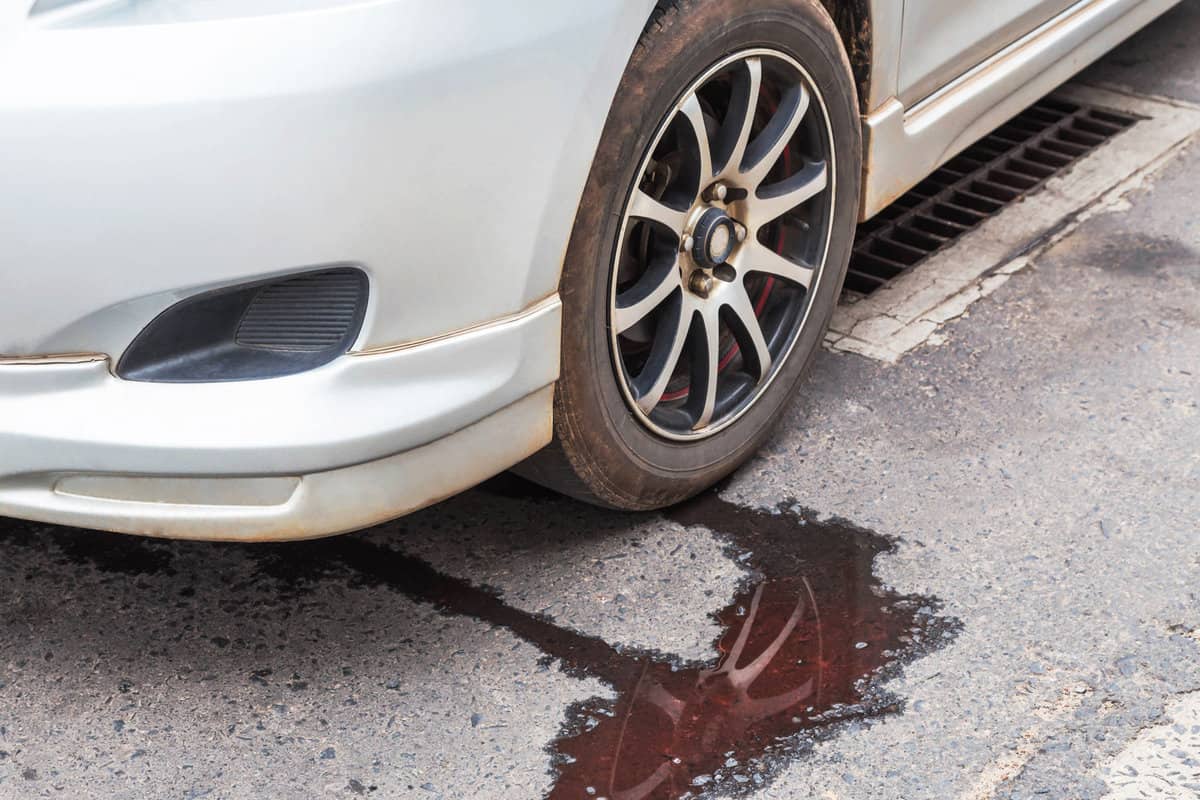
To avoid spending the annual cost on hydraulic system repairs, practice proper maintenance with your car.
Make sure you do not overheat your system and keep your parts up to date. Keep up with your car maintenance, and do not overexert your vehicle.
When refilling the hydraulic fluid reservoir on your car, make sure that the cap is properly sealed. Something as simple as this can make a big difference and save you hundreds of dollars in the long run.
Is Hydraulic Fluid The Same As Hydraulic Oil?
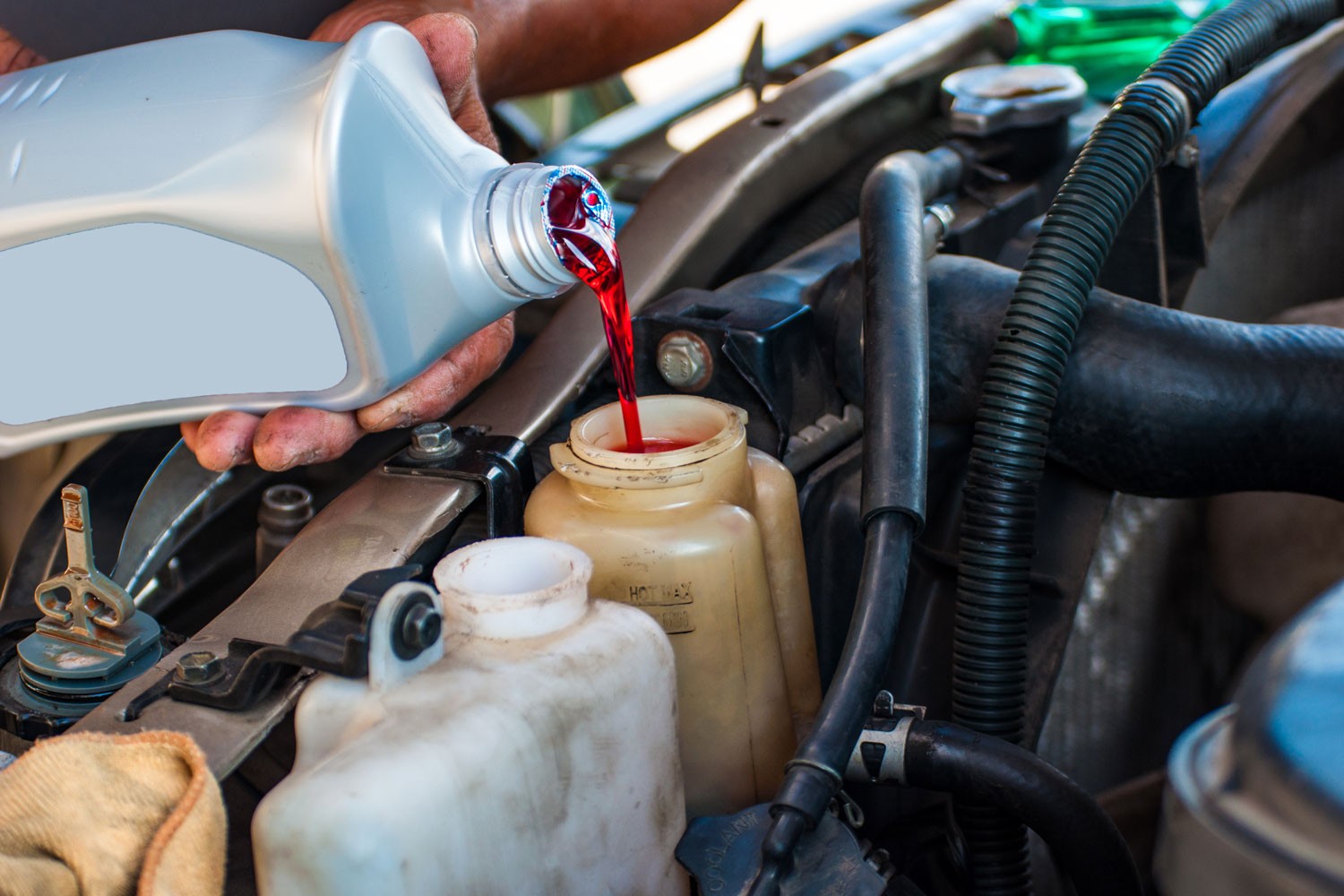
Hydraulic oil is a type of hydraulic fluid, but not all hydraulic fluids are oil-based. You can get synthetic or mineral hydraulic oil.
Different machines need different types of fluid. You should be familiar with the hydraulic pump of your car and know its specifications for fluid viscosity grade and oil type.
Your automotive specialist will be able to help you when it comes down to specific systems like hydraulics. Do not mix hydraulic fluids, as this can damage the system and cost you more should issues arise.
Wrapping Things Up
Not all hydraulic fluids can harm car paint, but some can. It is a good idea to avoid getting any type of hydraulic fluid or chemical on your car's surface to protect it from damage.
As a rule of thumb, remember that brake oil thins car paint, while mineral hydraulic oil causes stains. As long as you are careful when handling these fluids around your car, you should not have any problems.
Did you find this post helpful? If you did, check out our other articles before you go!

